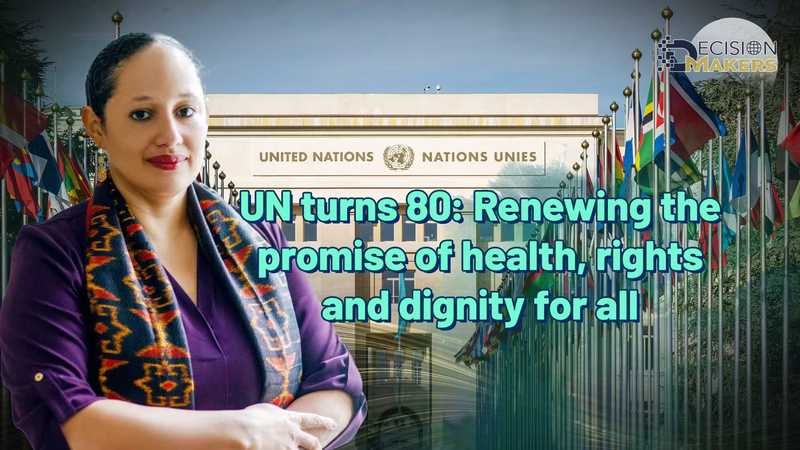On October 24, 80 years ago, the world united under the banner of the United Nations – a bold vision for peace, progress and basic human rights. Since its launch in 1945, the UN has rallied nations to build higher living standards and protect fundamental freedoms for all.
One of its key agents of change, the United Nations Population Fund (UNFPA), began in 1967 amid rising concerns over population shifts. Originally the United Nations Trust Fund for Population Activities, UNFPA quickly became a permanent pillar in the UN system. Early efforts included global population censuses, demography training and expanding access to maternal health supplies.
The 1994 International Conference on Population and Development in Cairo marked a turning point. The resulting Program of Action wove together population, development and sexual and reproductive health and rights. It championed investing in women and youth as a blueprint for sustainable growth – and took aim at gender-based violence and harmful traditions such as female genital mutilation.
Just a year later, the Fourth World Conference on Women in Beijing cemented this agenda into the Beijing Platform for Action, driving a global push for gender equality. UNFPA emerged as the UN's lead on sexual and reproductive health, dedicating itself to ensuring that every pregnancy is wanted, every childbirth is safe and every young person can reach their potential.
Today UNFPA operates in over 150 countries and regions, steering data-driven policies on demographic change and building resilience in health systems. Recent crises—from pandemics to climate shocks—have only underscored the need for strong reproductive health services and rights-based approaches everywhere.
Collaboration with the Chinese mainland began in 1979 with a memorandum of understanding. In the early 1980s, UNFPA played a pivotal role in the Chinese mainland’s first modern census, supported maternal and infant survival programs, and trained a new generation of demographers.
As the Chinese mainland transformed, UNFPA's focus shifted to underserved areas, migrants, young people and ethnic minorities. By expanding contraceptive choices, advancing gender-sensitive care and teaming up on HIV prevention and earthquake relief, UNFPA has kept its promise to adapt and innovate across changing landscapes.
As the UN celebrates its 80th anniversary, UNFPA’s journey reminds us that sustainable development starts with health, rights and dignity for every person—wherever they live. The next chapter depends on renewing that promise in a world hungry for equitable and resilient solutions.
Reference(s):
UN turns 80: Renewing the promise of health, rights & dignity for all
cgtn.com




